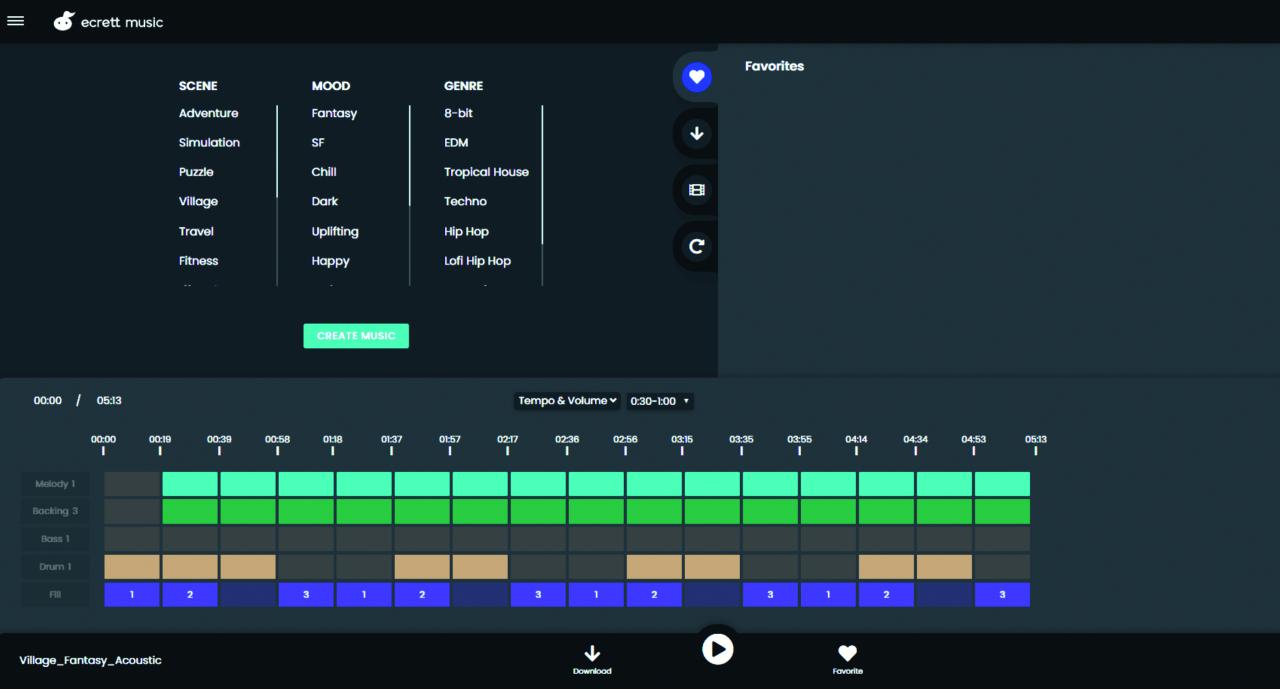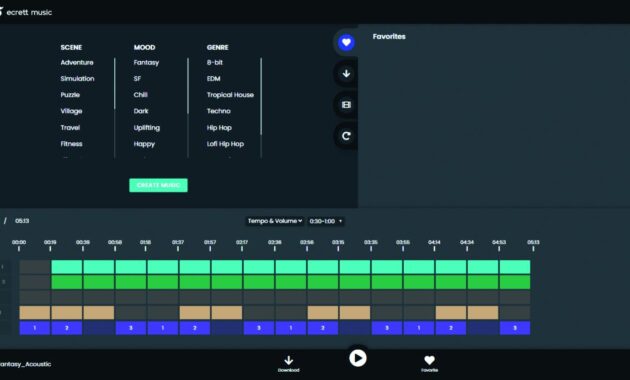AI Tools That Make Creative Work Easier in 2025 sets the stage for this enthralling narrative, offering readers a glimpse into the future where technology enhances creativity like never before. As we venture into this year, the landscape of creative work is being transformed by innovative AI tools designed to streamline processes, ignite inspiration, and foster collaboration across various artistic fields.
From graphic design to content creation, these tools are not only simplifying tasks but also empowering creatives to focus on what truly matters: their unique vision and expression.
With advancements in machine learning and natural language processing, the capabilities of these tools are expanding rapidly, allowing artists, writers, and designers to push the boundaries of their craft. This exploration of AI’s impact on creative work in 2025 highlights not only the tools themselves but also the changing dynamics of the creative industry, where technology and human ingenuity intersect.
In recent years, artificial intelligence (AI) has transitioned from a theoretical concept to a practical tool that is transforming various sectors of society. This article explores the multifaceted impact of AI on modern life, examining its applications, benefits, challenges, and future prospects.
Understanding Artificial Intelligence
Artificial Intelligence refers to the simulation of human intelligence in machines programmed to think and learn like humans. These systems are designed to perform tasks typically requiring human intelligence, such as visual perception, speech recognition, decision-making, and language translation. The field of AI is broadly categorized into two types: narrow AI, which specializes in a specific task, and general AI, which possesses the ability to perform any intellectual task that a human can do, although true general AI remains largely theoretical.
Applications of AI in Various Sectors
Healthcare
One of the most significant applications of AI is in the healthcare sector. AI algorithms are being utilized to analyze medical data, enhance diagnostic accuracy, and personalize treatment plans. For instance, machine learning models can predict patient outcomes based on historical data, enabling healthcare professionals to make informed decisions swiftly. Moreover, AI-powered tools are instrumental in drug discovery, where they can process vast amounts of data to identify potential candidates for new medications more efficiently than traditional methods.
Finance, AI Tools That Make Creative Work Easier in 2025
In finance, AI systems are reshaping how institutions approach risk management, fraud detection, and customer service. Banks and financial organizations are leveraging AI-driven algorithms to analyze transaction patterns in real-time, thus identifying fraudulent activities with high precision. Additionally, robo-advisors powered by AI provide investment advice based on individual client profiles, optimizing investment strategies with minimal human intervention.
Transportation
The transportation industry is experiencing a revolution due to AI technologies. Self-driving cars, powered by sophisticated AI algorithms, are being tested and deployed in many urban areas. These vehicles rely on a combination of sensors and machine learning to navigate roads, interpret traffic signals, and respond to dynamic environments. Moreover, AI is optimizing logistics and supply chain management by predicting demand, enhancing route planning, and improving fleet management.

Education
AI is also making significant strides in the education sector. Personalized learning platforms employ AI to adapt course materials to meet the unique needs of individual students, thereby enhancing engagement and improving learning outcomes. Intelligent tutoring systems can provide real-time feedback to learners, helping them to overcome challenges and master new concepts more effectively.
The Benefits of AI Adoption
The integration of AI into various sectors brings numerous advantages. First and foremost, AI enhances efficiency by automating routine tasks, allowing human workers to focus on more complex and creative endeavors. For instance, in manufacturing, AI-driven robots can perform repetitive tasks with high accuracy, significantly reducing production times and costs.
Furthermore, AI contributes to improved decision-making processes. By analyzing large datasets, AI systems can uncover insights and trends that may not be apparent to human analysts. This data-driven approach leads to more informed and strategic decisions across diverse fields, from business operations to public policy.
Moreover, AI can enhance customer experience by providing personalized services. Businesses are increasingly using AI to analyze consumer behavior and preferences, allowing them to tailor their marketing strategies and product offerings to meet specific customer needs. This level of personalization not only boosts customer satisfaction but also drives sales and loyalty.
Challenges and Ethical Considerations
Despite the many benefits of AI, its rapid development raises several challenges and ethical concerns. One of the primary issues is the potential for job displacement due to automation. As AI systems become more capable, there is a growing fear that they may replace human workers in various industries, leading to unemployment and economic inequality. This concern calls for proactive measures to reskill and upskill the workforce to adapt to an AI-driven job market.
Additionally, the use of AI poses significant ethical dilemmas, particularly regarding data privacy and security. AI systems often rely on vast amounts of personal data to function effectively, raising concerns about how this data is collected, stored, and used. There is a pressing need for regulations that protect individual privacy while allowing for innovation in AI technologies.
Bias in AI algorithms is another critical issue. If AI systems are trained on biased data, they can perpetuate and even exacerbate existing societal inequalities. For example, facial recognition technology has been shown to exhibit biases against certain demographic groups, leading to discriminatory outcomes. Addressing these biases is crucial to ensuring that AI systems operate fairly and equitably.
The Future of AI: AI Tools That Make Creative Work Easier In 2025
As we look to the future, the potential of AI appears boundless. Continued advancements in machine learning and data analytics will likely lead to even more innovative applications across various sectors. However, for AI to reach its full potential, a collaborative effort between governments, businesses, and academia is essential to address the ethical and societal challenges associated with its adoption.
Furthermore, fostering public trust in AI technologies will be critical. Transparent practices, ethical guidelines, and inclusive policies that prioritize the well-being of society must be established. Engaging in open dialogues about the implications of AI and involving diverse voices in the development of these technologies will be crucial in shaping an equitable future.
Conclusion
In conclusion, artificial intelligence is poised to fundamentally reshape modern society, offering remarkable benefits and presenting complex challenges. Its application across various sectors, from healthcare to transportation, demonstrates its transformative potential. However, as we embrace AI technologies, it is imperative to navigate the ethical landscape carefully and ensure that the benefits of AI are distributed equitably. By doing so, we can harness the power of AI to create a more efficient, innovative, and just society.








